Are we ready for a paradigm shift in human existence post-Covid-19?
![Yesterday, White House health advisor Dr Anthony Fauci said that after COVID-19 pandemic people will have to give up handshaking indefinitely as a social greeting. Life is changing in a way unknown to humankind. Drawing upon his experience, visionary documentalist and digitisation expert Davinder Pal Singh envisions a new normal in how human beings will relate to each other and how society will function as and when the COVID-19 Coronavirus subsides and we are back to life as we have […]](https://www.theworldsikhnews.com/wp-content/uploads/2020/04/Lide-360x266.jpg)
Yesterday, White House health advisor Dr Anthony Fauci said that after COVID-19 pandemic people will have to give up handshaking indefinitely as a social greeting. Life is changing in a way unknown to humankind. Drawing upon his experience, visionary documentalist and digitisation expert Davinder Pal Singh envisions a new normal in how human beings will relate to each other and how society will function as and when the COVID-19 Coronavirus subsides and we are back to life as we have known it so far. He asks multiple questions and provokes as there are no easy answers.
A MINOR VIRAL OUTBREAK IN A LOCALITY IN CHINA TURNED INTO A GLOBAL PANDEMIC WITHIN WEEKS, bringing the entire global economy and people’s movement to a complete halt. It shook the entire world to its roots, causing untold grief and enormous human misery. Those already living on the periphery of the current socio-economic order have been pushed away into oblivion, further marginalizing them.
Job loss, wage loss, loss of medical cover, hurried enactment of new laws, strict enforcement, and surveillance. All these rapid changes are pointing to a certain direction. Is this the beginning of a new world order?
How COVID-19 will affect our culture, tangible and intangible heritage? Will COVID-19 change the way we have been living, doing business, travelling, communicating, conducting our religious ceremonies? Even practising religions? Does it change our priorities, our political thoughts, aspirations? It raises many critical concerns.
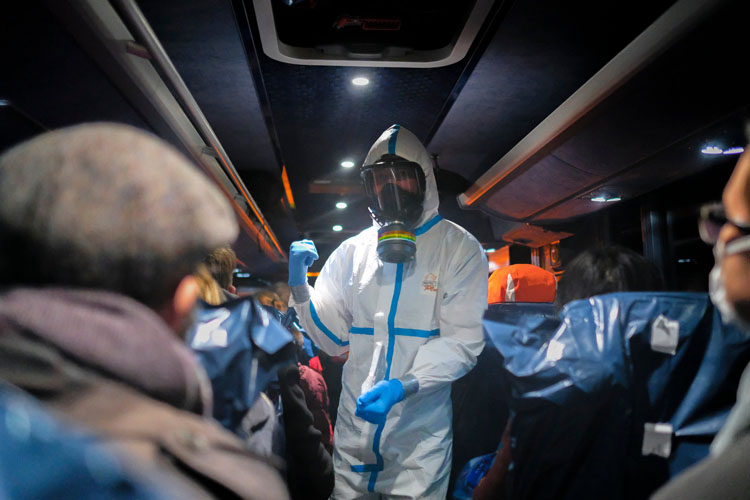
If we are given an option between privacy and health what will be our choice? Will it change the way we have been governed for over a century? What will happen to the existing laws and safeguards? Will this be an opportunity for the corporations to pressurize politicians to bring in a set of new laws that change the rules of the game? Will politicians succeed in using this to strengthen their grip over the citizenry? Are we going to face a highly authoritarian state? Will the surveillance gadgets sit over our heads?
How and when will this economic crisis hit our kitchens, our culinary habits, our daily food intake, vegetarianism or otherwise?
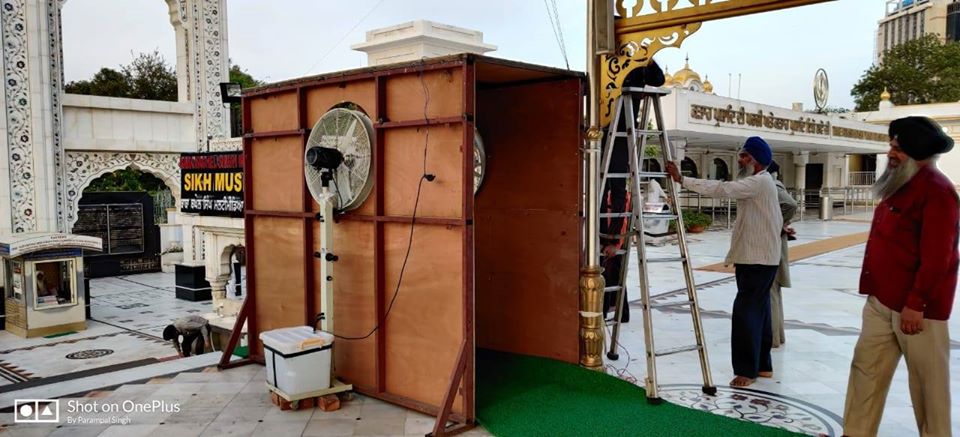
What is the future of Museums, Libraries, antiquities? Will we visit them as we used to? Will there be a need for curators to write next to the murals, “Do not touch, please.”
How COVID-19 will affect our culture?
Are we facing the storm because we ate a bat, polluted the air, rivers and played with the natural order? Are we polluting the earth with radiation from mobile towers, which disturbs viruses sitting quietly in animals?
If we are given an option between privacy and health what will be our choice? Will it change the way we have been governed for over a century? What will happen to the existing laws and safeguards? Will this be an opportunity for the corporations to pressurize politicians to bring in a set of new laws that change the rules of the game? Will politicians succeed in using this to strengthen their grip over the citizenry? Are we going to face a highly authoritarian state? Will the surveillance gadgets sit over our heads?
About twenty years ago we used to hear that technologies are being developed in the west to monitor and manipulate people and societies at large. Has this technology taken form? What if a vaccine is not developed, or new virus infections keep showing up on the world map on a regular basis as they have in the past two decades? Will we have to live with being sick every few years?
Questions galore! Answers limited!!
 The world is in crisis today. We are witnessing a global emergency; the biggest crises of our generation, maybe the biggest of three generations. In Panjab, the last horrific event we witnessed was Partition of Panjab in 1947 resulting in over a million people being killed, and millions of more left homeless. Before the partition of Panjab, India faced Plague, in which over 10 million people vanished. Times had always been tough, but these tragedies only made generations more resilient.
The world is in crisis today. We are witnessing a global emergency; the biggest crises of our generation, maybe the biggest of three generations. In Panjab, the last horrific event we witnessed was Partition of Panjab in 1947 resulting in over a million people being killed, and millions of more left homeless. Before the partition of Panjab, India faced Plague, in which over 10 million people vanished. Times had always been tough, but these tragedies only made generations more resilient.
Our previous generations must be real heroes, we exist only because of their grit. They faced the toughest situations head-on and survived. We are their sons and daughters; we will also survive. The question is not only of survival, it is a question about the change we are about to witness.
All of us jointly need to bring our focus on these questions and start finding answers. We all understand our healthcare system will witness a sea change, the economy and politics will also be different. We need to start thinking about these questions and prepare ourselves.
I sensed a change in 1996, felt the need to start preserving, protecting and archiving the precious knowledge about Panjab in a digital format, as that for me was the need of the hour. But the time was not ripe, I was not ready. Finally, I resigned from my business and started the digitization project in 2003, as I visualized that society may completely go digital by 2050.
The Panjab Digital Library had been anticipating change for a long time and felt the urgency to start preserving the collective wisdom of Panjab in digital format, as that was the future.
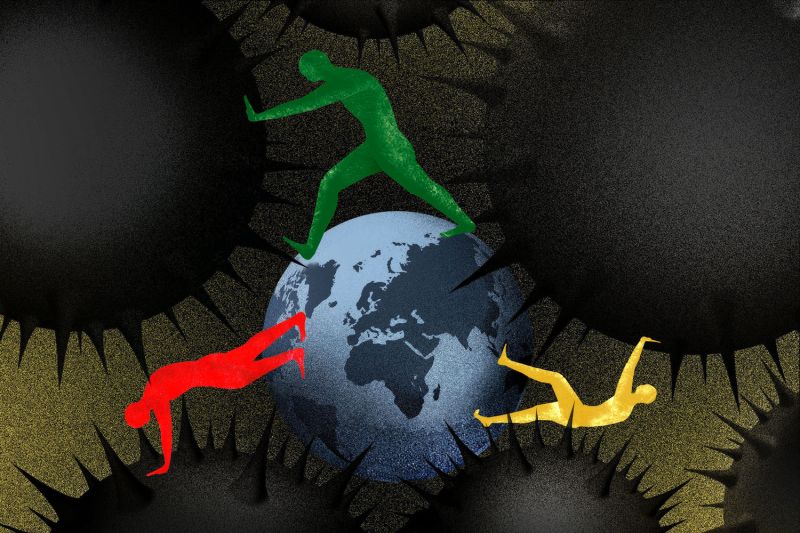
I had visualized that every household will have a computer and all education will be imparted through computers. More than that happened, today everybody carries a computer in one’s pocket. As I type this my son is attempting his 2nd year BBA Mathematics final exam online. His university has already announced that next semester beginning August 2020 will be online. Things which were expected to change gradually, are being abruptly introduced in our lives.
I used to say that the human race will forget the art of writing and the pen, pencil and paper industry will disappear. Today advisories warn about sanitizing our laptops and mobiles; nobody asks to sanitize our pens or pencils. Nobody has guided us on how to sanitize our precious books, even though the virus stays alive the longest time on paper. The change that we expected in 2050 is already here.
Just imagine the chaos if the monsoon arrives in December and January instead of June and July. It will be a catastrophe! We are actually in the midst of a similar change, but unprepared for it.
These are not normal times. Let us join hands and start identifying areas of concern and plan for tomorrow; a tomorrow that is going to be very different. Let’s plan early, work together for a better tomorrow.
Earlier when faced with pandemics humans did not have options to switch the work, their jobs they were already doing. So, their lives went back to some sort of normalcy after the threat was over. Now they have an option to Go Digital; Work from home, get food delivered at home, shop online, read books online, study online, read news online et al. COVID-19 is one major event that can push an entire generation towards this digital living within months.
The psychological effects will be more devastating and lasting. No generation has read so extensively about any pandemic as ours. News, fake news, international media, religious news, social media, you name it and we have it on our fingertips, but sans the ability to separate the grain from the chaff.
We may have a whole generation ‘inflicted’ with a germophobia. Anxiety levels, robberies, thefts are likely to increase. This will be a new normal; our earlier normal life may cease to exist. I don’t think humans will ever return to the previous normal even if a vaccine for COVID-19 Coronavirus is developed.
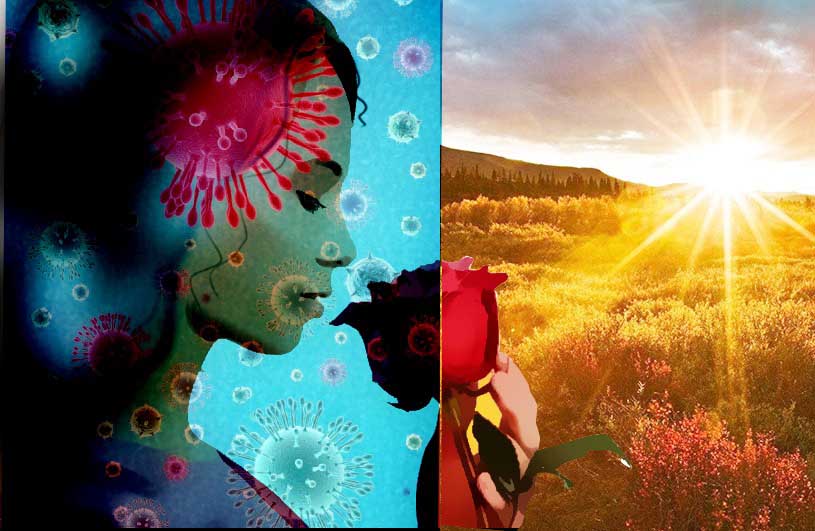
In October 2019 experts in the USA, at Event 201 hosted by John Hopkins Center for Health and Security, had agreed that “a severe, fast-spreading human-to-human pandemic incident could happen at any time.” Still, we didn’t prepare ourselves for it? We are not prepared even in April 2020? Are we being led by wise, humane people? Humankind will have to prepare for this physically, mentally, emotionally and spiritually.
These are not normal times. Let us join hands and start identifying areas of concern and plan for tomorrow; a tomorrow that is going to be very different. Let’s plan early, work together for a better tomorrow.
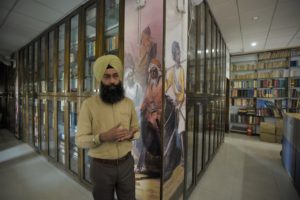 Davinder Pal Singh is the co-founder and executive director of Panjab Digital Library (PDL). A visionary in the field, he introduced digitization in Panjab when the technology used for digital preservation of heritage was in its infancy. He works as a consultant with different national and international organizations on heritage preservation and assists in setting up museums, exhibitions, and digital libraries. He has contributed to improvise and develop technology to suit the needs of digitization taking into account the limited resources at the disposal of cultural institutions. He has curated over 23 million pages into the first digital library of South Asia.
Davinder Pal Singh is the co-founder and executive director of Panjab Digital Library (PDL). A visionary in the field, he introduced digitization in Panjab when the technology used for digital preservation of heritage was in its infancy. He works as a consultant with different national and international organizations on heritage preservation and assists in setting up museums, exhibitions, and digital libraries. He has contributed to improvise and develop technology to suit the needs of digitization taking into account the limited resources at the disposal of cultural institutions. He has curated over 23 million pages into the first digital library of South Asia.
 Print
Print

 154
154


3 thoughts on “Are we ready for a paradigm shift in human existence post-Covid-19?”